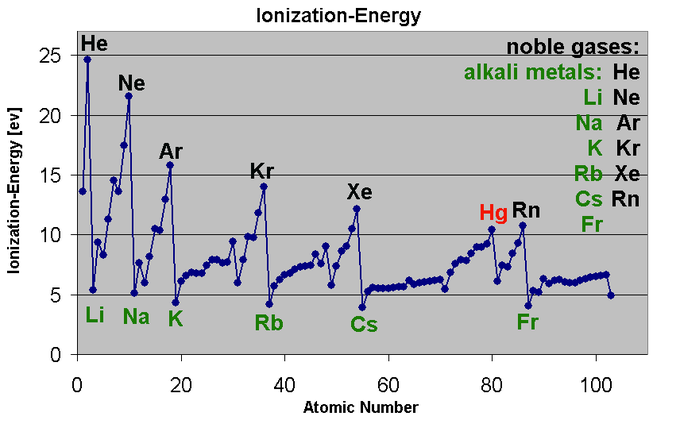-18 using an observation from Peter Taylor (order 10 values have leading 1 or 2, while order 1 values do not).
<3Ḣ‘_L⁵*×Ḍ
“KẸ⁺dzⱮÑ2⁵İ2ṭ¬⁴²¬¶9°ß°øİẆGẊœ%X(¢ṆḢ/8¬Ɗ’b7µ18,-;_3+\⁺Ṭœṗ“SŒƥŻƭ°}MḋṘḥfyɼ{ṅĊLƝġœ⁺ḟ8ḶhỊDṭ&æ%*ɱ¬ =¦ẉ Qh"¶:ḌĊ€ĖṢė°ġṀƬmẓSṃ÷E⁴Ȥ⁼ḋ#ØĖḂ2øzẸżƈ¥Ȧƥ7¢®|ḳẊṆƙƲɦḟɼṖỊɲṁẉɗ6ẇSɗ⁴ẉİt]ẓeṆHṚƑ½>]ɦ~T¢~ẆẆA`/6ƭṡxṠKG£Ḅ+wḃḣỤw×ḌŻƲF>Ụ]5bJḤḟCḞİḶ|ȥ9Ỵ0ụKṗT⁴ƥƁṖı×ṄtTĊG©ṀḥṬƭʂd½ḊȦуŀṣ¹ʋṖẓYL²ṅṿ&ẏdDṬIɦỵ¹b,ḷṣƭ#P'µ{GTƇẹ¥L8SƥÑṆẈėẎßṀḷƓ⁷ðḳċ¿ḶM_ḲẈg9ḢĠi+LṭẹḲẎ¤g<ṘJJĿßæ⁺(ɲỴ3ɲgkSḃIƙṭ.Ỵ&_:cĿƝı’D¤Ç€
Try it online!
How?
Creates these two constants (AKA nilads):
- (A) all the decimal digits used (i.e. the numbers all joined up ignoring where they join and their decimal place separators), and
- (B) the number of significant figures used by each number
Then uses those to reconstruct floating point representations of the numbers.
The full program is of this form:
<3Ḣ‘_L⁵*×Ḍ
“...’b7µ18,-;_3+\⁺Ṭœṗ“...’D¤Ç€
(where ... are encoded numbers for constructing B, and A)
and works like this:
<3Ḣ‘_L⁵*×Ḍ - Link 1, conversion helper: list of digits e.g. [1,2,9,6,7,6,3]
<3 - less than three? [1,1,0,0,0,0,0]
Ḣ - head 1
‘ - increment 2
L - length 7
_ - subtract -5
⁵ - literal ten 10
* - exponentiate 0.00001
Ḍ - undecimal (convert from base 10) 1296763
× - multiply 12.96763
- i.e. go from digits to a number between 3 and 30
“...’b7µ18,-;_3+\⁺Ṭœṗ“...’D¤Ç€ - Main link: no arguments
“...’ - base 250 literal = 16242329089425509505495393436399830365761075941410177200411131173280169129083782003564646
b7 - to base seven = [2,0,4,3,2,4,2,4,3,2,3,3,4,2,3,5,3,3,0,3,4,2,4,4,1,4,3,4,3,2,1,5,3,5,1,5,0,3,3,3,3,3,3,3,4,3,4,2,3,2,4,5,4,0,1,3,2,4,2,5,4,2,2,4,2,3,4,4,3,3,3,2,3,3,3,3,4,4,3,3,2,0,5,3,5,2,3,1,1,6,2,3,3,3,3,3,3,1,3,3,3,3,2,3,3]
µ - start a new monadic chain, call that x
18,- - integer list literal = [18,-1]
; - concatenate with x = [18,-1,2,0,4,3,2,4,2,4,3,2,3,3,4,2,3,5,3,3,0,3,4,2,4,4,1,4,3,4,3,2,1,5,3,5,1,5,0,3,3,3,3,3,3,3,4,3,4,2,3,2,4,5,4,0,1,3,2,4,2,5,4,2,2,4,2,3,4,4,3,3,3,2,3,3,3,3,4,4,3,3,2,0,5,3,5,2,3,1,1,6,2,3,3,3,3,3,3,1,3,3,3,3,2,3,3]
_3 - subtract three = [15,-4,-1,-3,1,0,-1,1,-1,1,0,-1,0,0,1,-1,0,2,0,0,-3,0,1,-1,1,1,-2,1,0,1,0,-1,-2,2,0,2,-2,2,-3,0,0,0,0,0,0,0,1,0,1,-1,0,-1,1,2,1,-3,-2,0,-1,1,-1,2,1,-1,-1,1,-1,0,1,1,0,0,0,-1,0,0,0,0,1,1,0,0,-1,-3,2,0,2,-1,0,-2,-2,3,-1,0,0,0,0,0,0,-2,0,0,0,0,-1,0,0]
\ - cumulative reduce with:
+ - addition = [15,11,10,7,8,8,7,8,7,8,8,7,7,7,8,7,7,9,9,9,6,6,7,6,7,8,6,7,7,8,8,7,5,7,7,9,7,9,6,6,6,6,6,6,6,6,7,7,8,7,7,6,7,9,10,7,5,5,4,5,4,6,7,6,5,6,5,5,6,7,7,7,7,6,6,6,6,6,7,8,8,8,7,4,6,6,8,7,7,5,3,6,5,5,5,5,5,5,5,3,3,3,3,3,2,2,2]
- ("B" significant figures, with 1 extra for the very first entry and a missing last entry)
⁺ - repeat (the cumulative addition to get
- partition positions) = [15,26,36,43,51,59,66,74,81,89,97,104,111,118,126,133,140,149,158,167,173,179,186,192,199,207,213,220,227,235,243,250,255,262,269,278,285,294,300,306,312,318,324,330,336,342,349,356,364,371,378,384,391,400,410,417,422,427,431,436,440,446,453,459,464,470,475,480,486,493,500,507,514,520,526,532,538,544,551,559,567,575,582,586,592,598,606,613,620,625,628,634,639,644,649,654,659,664,669,672,675,678,681,684,686,688,690]
Ṭ - untruth (1s at those indices) = [0,0,0,0,0,0,0,0,0,0,0,0,0,0,1,0,0,0,0,0,0,0,0,0,0,1,0,0,0,0,0,0,0,0,0,1,0,0,0,0,0,0,1,0,0,0,0,0,0,0,1,0,0,0,0,0,0,0,1,0,0,0,0,0,0,1,0,0,0,0,0,0,0,1,0,0,0,0,0,0,1,0,0,0,0,0,0,0,1,0,0,0,0,0,0,0,1,0,0,0,0,0,0,1,0,0,0,0,0,0,1,0,0,0,0,0,0,1,0,0,0,0,0,0,0,1,0,0,0,0,0,0,1,0,0,0,0,0,0,1,0,0,0,0,0,0,0,0,1,0,0,0,0,0,0,0,0,1,0,0,0,0,0,0,0,0,1,0,0,0,0,0,1,0,0,0,0,0,1,0,0,0,0,0,0,1,0,0,0,0,0,1,0,0,0,0,0,0,1,0,0,0,0,0,0,0,1,0,0,0,0,0,1,0,0,0,0,0,0,1,0,0,0,0,0,0,1,0,0,0,0,0,0,0,1,0,0,0,0,0,0,0,1,0,0,0,0,0,0,1,0,0,0,0,1,0,0,0,0,0,0,1,0,0,0,0,0,0,1,0,0,0,0,0,0,0,0,1,0,0,0,0,0,0,1,0,0,0,0,0,0,0,0,1,0,0,0,0,0,1,0,0,0,0,0,1,0,0,0,0,0,1,0,0,0,0,0,1,0,0,0,0,0,1,0,0,0,0,0,1,0,0,0,0,0,1,0,0,0,0,0,1,0,0,0,0,0,0,1,0,0,0,0,0,0,1,0,0,0,0,0,0,0,1,0,0,0,0,0,0,1,0,0,0,0,0,0,1,0,0,0,0,0,1,0,0,0,0,0,0,1,0,0,0,0,0,0,0,0,1,0,0,0,0,0,0,0,0,0,1,0,0,0,0,0,0,1,0,0,0,0,1,0,0,0,0,1,0,0,0,1,0,0,0,0,1,0,0,0,1,0,0,0,0,0,1,0,0,0,0,0,0,1,0,0,0,0,0,1,0,0,0,0,1,0,0,0,0,0,1,0,0,0,0,1,0,0,0,0,1,0,0,0,0,0,1,0,0,0,0,0,0,1,0,0,0,0,0,0,1,0,0,0,0,0,0,1,0,0,0,0,0,0,1,0,0,0,0,0,1,0,0,0,0,0,1,0,0,0,0,0,1,0,0,0,0,0,1,0,0,0,0,0,1,0,0,0,0,0,0,1,0,0,0,0,0,0,0,1,0,0,0,0,0,0,0,1,0,0,0,0,0,0,0,1,0,0,0,0,0,0,1,0,0,0,1,0,0,0,0,0,1,0,0,0,0,0,1,0,0,0,0,0,0,0,1,0,0,0,0,0,0,1,0,0,0,0,0,0,1,0,0,0,0,1,0,0,1,0,0,0,0,0,1,0,0,0,0,1,0,0,0,0,1,0,0,0,0,1,0,0,0,0,1,0,0,0,0,1,0,0,0,0,1,0,0,0,0,1,0,0,1,0,0,1,0,0,1,0,0,1,0,0,1,0,1,0,1,0,1]
¤ - nilad followed by link(s) as a nilad:
“...’ - base 250 literal = 1359843400513624587387936539171476193226998298019011260296145341313618054174228221564540513907677646235598576881516831048668610360011296763157596112434066354611315520656149682812674618767665174340187902467878810176398777726380939419905999301878994359788697523921181381139996049417712856948672062172666339067588570924371193873605074589083368675762348993822578635527343917860838990096610451261212984313893905548521166455769553865473552505582564371567038561498058638593905602156107761843162541595425871682506975495717864037833528438238967028958839225553104375046108287174166796728551684149317511074854072740952784245380226630675896194056265560258597385991461978628176367665065866549060168787776
D - decimal (to base 10) = [1,3,5,9,8,4,3,4,0,0,5,1,3,6,2,4,5,8,7,3,8,7,9,3,6,5,3,9,1,7,1,4,7,6,1,9,3,2,2,6,9,9,8,2,9,8,0,1,9,0,1,1,2,6,0,2,9,6,1,4,5,3,4,1,3,1,3,6,1,8,0,5,4,1,7,4,2,2,8,2,2,1,5,6,4,5,4,0,5,1,3,9,0,7,6,7,7,6,4,6,2,3,5,5,9,8,5,7,6,8,8,1,5,1,6,8,3,1,0,4,8,6,6,8,6,1,0,3,6,0,0,1,1,2,9,6,7,6,3,1,5,7,5,9,6,1,1,2,4,3,4,0,6,6,3,5,4,6,1,1,3,1,5,5,2,0,6,5,6,1,4,9,6,8,2,8,1,2,6,7,4,6,1,8,7,6,7,6,6,5,1,7,4,3,4,0,1,8,7,9,0,2,4,6,7,8,7,8,8,1,0,1,7,6,3,9,8,7,7,7,7,2,6,3,8,0,9,3,9,4,1,9,9,0,5,9,9,9,3,0,1,8,7,8,9,9,4,3,5,9,7,8,8,6,9,7,5,2,3,9,2,1,1,8,1,3,8,1,1,3,9,9,9,6,0,4,9,4,1,7,7,1,2,8,5,6,9,4,8,6,7,2,0,6,2,1,7,2,6,6,6,3,3,9,0,6,7,5,8,8,5,7,0,9,2,4,3,7,1,1,9,3,8,7,3,6,0,5,0,7,4,5,8,9,0,8,3,3,6,8,6,7,5,7,6,2,3,4,8,9,9,3,8,2,2,5,7,8,6,3,5,5,2,7,3,4,3,9,1,7,8,6,0,8,3,8,9,9,0,0,9,6,6,1,0,4,5,1,2,6,1,2,1,2,9,8,4,3,1,3,8,9,3,9,0,5,5,4,8,5,2,1,1,6,6,4,5,5,7,6,9,5,5,3,8,6,5,4,7,3,5,5,2,5,0,5,5,8,2,5,6,4,3,7,1,5,6,7,0,3,8,5,6,1,4,9,8,0,5,8,6,3,8,5,9,3,9,0,5,6,0,2,1,5,6,1,0,7,7,6,1,8,4,3,1,6,2,5,4,1,5,9,5,4,2,5,8,7,1,6,8,2,5,0,6,9,7,5,4,9,5,7,1,7,8,6,4,0,3,7,8,3,3,5,2,8,4,3,8,2,3,8,9,6,7,0,2,8,9,5,8,8,3,9,2,2,5,5,5,3,1,0,4,3,7,5,0,4,6,1,0,8,2,8,7,1,7,4,1,6,6,7,9,6,7,2,8,5,5,1,6,8,4,1,4,9,3,1,7,5,1,1,0,7,4,8,5,4,0,7,2,7,4,0,9,5,2,7,8,4,2,4,5,3,8,0,2,2,6,6,3,0,6,7,5,8,9,6,1,9,4,0,5,6,2,6,5,5,6,0,2,5,8,5,9,7,3,8,5,9,9,1,4,6,1,9,7,8,6,2,8,1,7,6,3,6,7,6,6,5,0,6,5,8,6,6,5,4,9,0,6,0,1,6,8,7,8,7,7,7,6]
- ("A" all the required digits in order)
œṗ - partition at truthy indices = [[1,3,5,9,8,4,3,4,0,0,5,1,3,6],[2,4,5,8,7,3,8,7,9,3,6],[5,3,9,1,7,1,4,7,6,1],[9,3,2,2,6,9,9],[8,2,9,8,0,1,9,0],[1,1,2,6,0,2,9,6],[1,4,5,3,4,1,3],[1,3,6,1,8,0,5,4],[1,7,4,2,2,8,2],[2,1,5,6,4,5,4,0],[5,1,3,9,0,7,6,7],[7,6,4,6,2,3,5],[5,9,8,5,7,6,8],[8,1,5,1,6,8,3],[1,0,4,8,6,6,8,6],[1,0,3,6,0,0,1],[1,2,9,6,7,6,3],[1,5,7,5,9,6,1,1,2],[4,3,4,0,6,6,3,5,4],[6,1,1,3,1,5,5,2,0],[6,5,6,1,4,9],[6,8,2,8,1,2],[6,7,4,6,1,8,7],[6,7,6,6,5,1],[7,4,3,4,0,1,8],[7,9,0,2,4,6,7,8],[7,8,8,1,0,1],[7,6,3,9,8,7,7],[7,7,2,6,3,8,0],[9,3,9,4,1,9,9,0],[5,9,9,9,3,0,1,8],[7,8,9,9,4,3,5],[9,7,8,8,6],[9,7,5,2,3,9,2],[1,1,8,1,3,8,1],[1,3,9,9,9,6,0,4,9],[4,1,7,7,1,2,8],[5,6,9,4,8,6,7,2,0],[6,2,1,7,2,6],[6,6,3,3,9,0],[6,7,5,8,8,5],[7,0,9,2,4,3],[7,1,1,9,3,8],[7,3,6,0,5,0],[7,4,5,8,9,0],[8,3,3,6,8,6],[7,5,7,6,2,3,4],[8,9,9,3,8,2,2],[5,7,8,6,3,5,5,2],[7,3,4,3,9,1,7],[8,6,0,8,3,8,9],[9,0,0,9,6,6],[1,0,4,5,1,2,6],[1,2,1,2,9,8,4,3,1],[3,8,9,3,9,0,5,5,4,8],[5,2,1,1,6,6,4],[5,5,7,6,9],[5,5,3,8,6],[5,4,7,3],[5,5,2,5,0],[5,5,8,2],[5,6,4,3,7,1],[5,6,7,0,3,8,5],[6,1,4,9,8,0],[5,8,6,3,8],[5,9,3,9,0,5],[6,0,2,1,5],[6,1,0,7,7],[6,1,8,4,3,1],[6,2,5,4,1,5,9],[5,4,2,5,8,7,1],[6,8,2,5,0,6,9],[7,5,4,9,5,7,1],[7,8,6,4,0,3],[7,8,3,3,5,2],[8,4,3,8,2,3],[8,9,6,7,0,2],[8,9,5,8,8,3],[9,2,2,5,5,5,3],[1,0,4,3,7,5,0,4],[6,1,0,8,2,8,7,1],[7,4,1,6,6,7,9,6],[7,2,8,5,5,1,6],[8,4,1,4],[9,3,1,7,5,1],[1,0,7,4,8,5],[4,0,7,2,7,4,0,9],[5,2,7,8,4,2,4],[5,3,8,0,2,2,6],[6,3,0,6,7],[5,8,9],[6,1,9,4,0,5],[6,2,6,5,5],[6,0,2,5,8],[5,9,7,3,8],[5,9,9,1,4],[6,1,9,7,8],[6,2,8,1,7],[6,3,6,7,6],[6,5,0],[6,5,8],[6,6,5],[4,9,0],[6,0,1],[6,8],[7,8],[7,7],[7,6]]
Ç€ - call the last link (1) as a monad for €ach = [13.598434005136,24.587387936000002,5.391714761,9.322699,8.298019,11.260295999999999,14.534129999999998,13.618053999999999,17.422819999999998,21.56454,5.1390766999999995,7.646235,5.985767999999999,8.151683,10.486686,10.360009999999999,12.96763,15.759611200000002,4.34066354,6.1131552000000005,6.561490000000001,6.82812,6.746187,6.76651,7.434018,7.902467799999999,7.881010000000001,7.639876999999999,7.72638,9.394199,5.9993018,7.8994349999999995,9.7886,9.752392,11.81381,13.9996049,4.177128,5.6948672,6.2172600000000005,6.633900000000001,6.758850000000001,7.09243,7.1193800000000005,7.360500000000001,7.458900000000001,8.336860000000001,7.5762339999999995,8.993822,5.7863552,7.343916999999999,8.608388999999999,9.00966,10.45126,12.129843099999999,3.893905548,5.211664,5.5769,5.538600000000001,5.473,5.525,5.582,5.6437100000000004,5.670385,6.149800000000001,5.8638,5.939050000000001,6.0215000000000005,6.1077,6.184310000000001,6.254159,5.425871,6.825069,7.549570999999999,7.8640300000000005,7.833520000000001,8.43823,8.967020000000002,8.95883,9.225553,10.437504,6.1082871,7.416679599999999,7.285515999999999,8.414,9.31751,10.7485,4.072740899999999,5.278423999999999,5.3802259999999995,6.3067,5.89,6.194050000000001,6.2655,6.0258,5.973800000000001,5.9914000000000005,6.1978,6.281700000000001,6.3676,6.5,6.58,6.65,4.9,6.01,6.800000000000001,7.800000000000001,7.7,7.6000000000000005]

